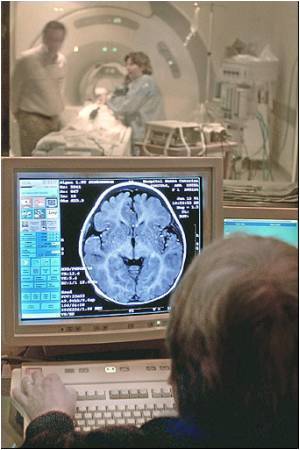Alzheimer's disease spreads from one part of the brain to another like an infection, says a new US study.

The findings, published Wednesday in the online journal PloS One, could one day help researchers develop treatments to slow or halt the progression of the disease, which causes increasingly severe dementia.
"The most effective approach may be to treat Alzheimer's the way we treat cancer -- through early detection and treatment, before it has a chance to spread," said study co-author and neurology professor Scott Small.
"The best way to cure Alzheimer's may be to identify and treat it when it is just beginning, to halt progression. It is during this early stage that the disease will be most amenable to treatment.
"That is the exciting clinical promise down the road."
Alzheimer's disease, the most common form of dementia, is characterized by the accumulation of plaques and fibrous tangles (composed of abnormal tau) in brain cells called neurons.
Advertisement
An estimated 5.4 million people suffer from the disease, which is the sixth leading cause of death in the United States, according to the Alzheimer's Association.
Advertisement
Source-AFP












